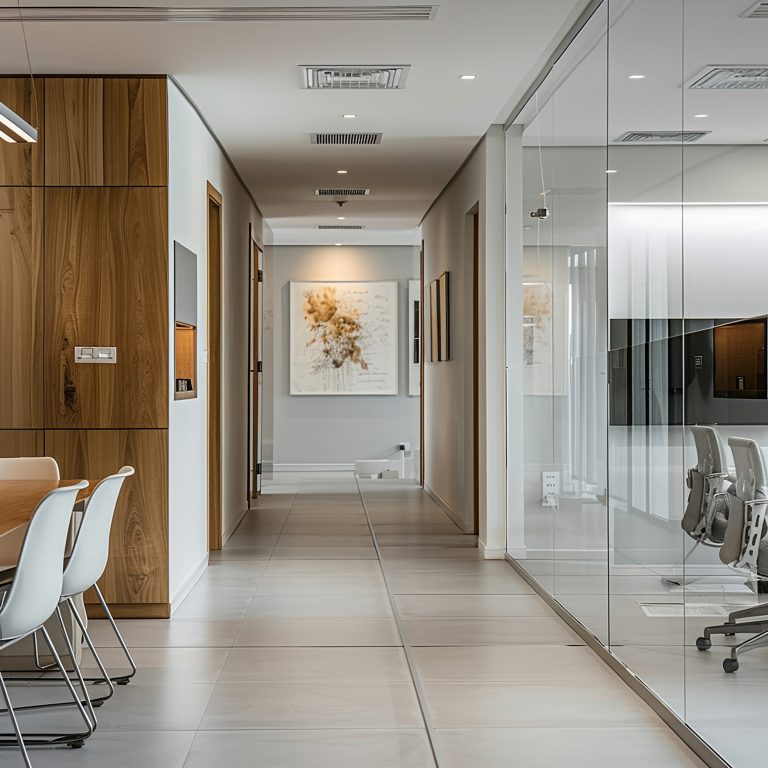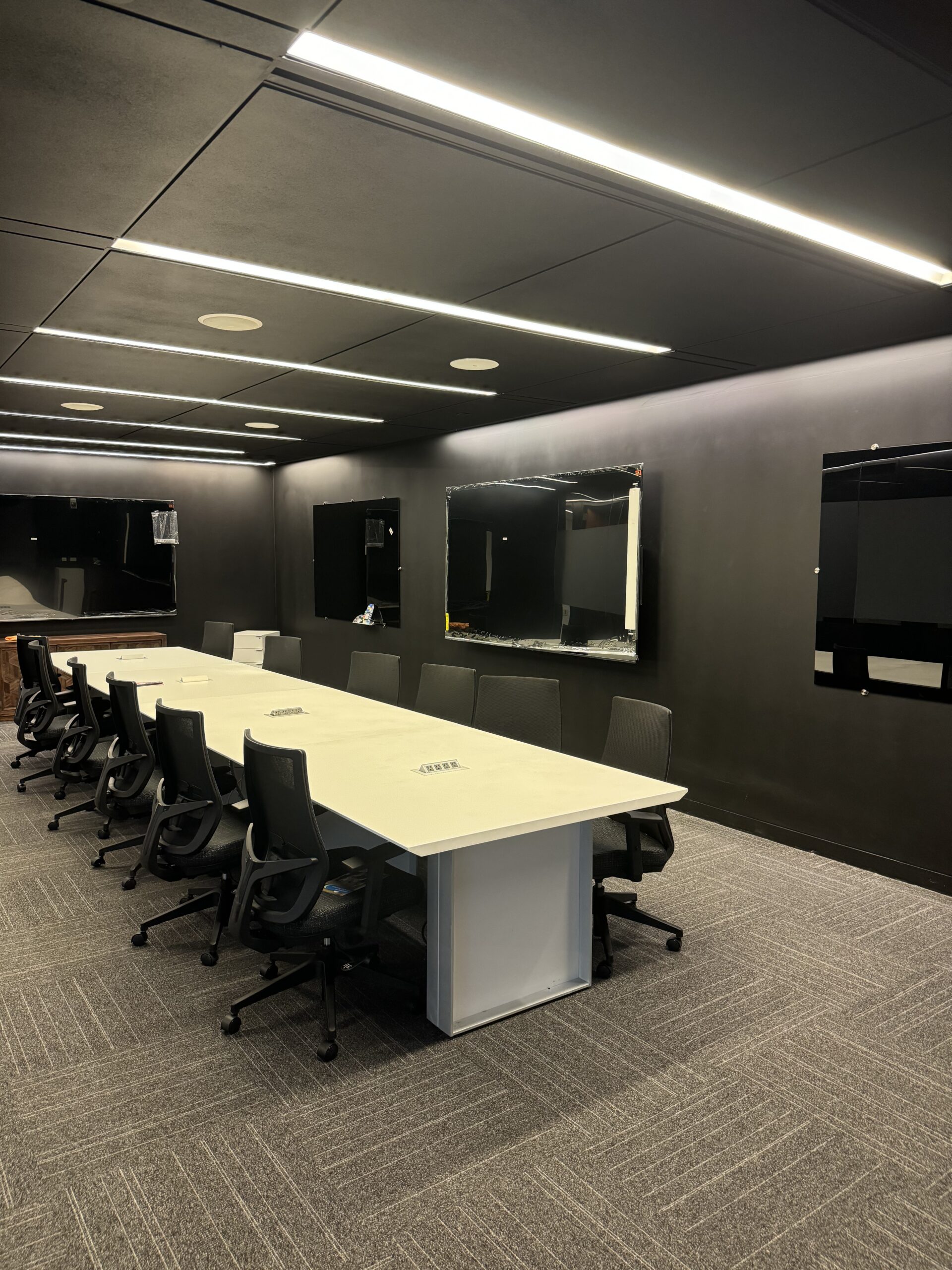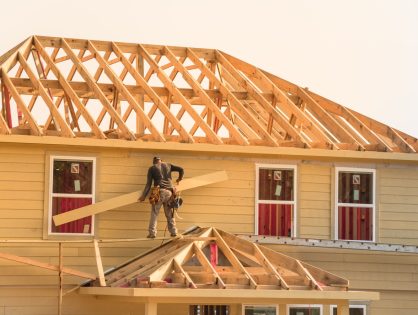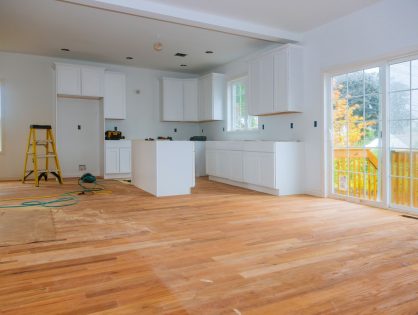Smart commercial property maintenance isn’t just about keeping things clean or fixing what’s broken. It’s about protecting your investment, supporting tenant satisfaction, and preventing costly surprises down the line. Whether you own a small office building in Arlington, manage a retail center in Montgomery County, or oversee a portfolio across the DMV, routine maintenance plays a critical role in long-term profitability.
As a seasoned general contractor in Arlington, VA, our team at Dzala General Contractor has worked with dozens of building owners and property managers across the DMV. In this guide, we’ll walk you through how proactive maintenance can safeguard your property and provide a competitive advantage — all while saving money over time.
What Falls Under Commercial Property Maintenance?
Commercial property maintenance is the ongoing process of inspecting, repairing, and upgrading various aspects of a building to ensure it remains functional, safe, and attractive to tenants. Think of it as everything that keeps your building running smoothly and your tenants happy.
Here’s what typically falls under a maintenance program:
- HVAC systems: Regular filter changes, duct inspections, and seasonal tune-ups
- Plumbing: Leak detection, water heater checks, and preventative pipe maintenance
- Electrical systems: Lighting inspections, wiring updates, and safety audits
- Exterior care: Roof inspections, landscaping, pressure washing, and façade upkeep
- Safety systems: Fire alarms, sprinklers, and emergency lighting
- Elevators and mechanical systems: Code compliance checks and service contracts
By covering these core areas consistently, you prevent minor issues from becoming expensive repairs.
For a deeper look into commercial property maintenance best practices, it’s clear that integrating technology into your maintenance strategy — from digital inspection checklists to automated alerts — improves both response time and cost efficiency.

The Hidden Costs of Skipping Routine Maintenance
Deferred maintenance may seem like a way to cut costs in the short term — but it almost always backfires.
Here’s why:
- Emergency repairs cost more: Rushed fixes, after-hours service calls, and material delays add up quickly.
- Insurance premiums can rise: Poorly maintained systems increase liability risks.
- Tenant dissatisfaction increases: No heat in winter? Persistent plumbing issues? These are deal-breakers.
- Property value declines: Outdated, worn-down buildings are less attractive to new tenants and investors.
- Code violations: Ignoring updates could land you in trouble with local inspectors and lead to fines or forced shutdowns.
A proactive maintenance plan is your insurance against these outcomes.
If you’re thinking that a grounds-up construction might make more sense for you, check out our Tips for Commercial Office Building Construction in the DMV.
DMV-Specific Maintenance Concerns
Owning or managing commercial property in the DMV area comes with its own set of regional quirks and responsibilities.
1. Climate Considerations
The region’s hot, humid summers and cold, wet winters mean your HVAC, roofing, and exterior materials need special attention. Seasonal maintenance helps systems withstand extreme temperatures and moisture.
2. Local Building Codes
Different jurisdictions — like Arlington County, Montgomery County, and Washington, DC — have varying regulations. These codes affect everything from elevator inspections to fire alarm testing.
- Arlington’s Commercial Building Permit Requirements outline maintenance-related approvals for commercial properties.
- Washington, DC Department of Buildings’ Permitting Process offers guidelines for inspections and permits during upgrade work.
- In Maryland, the Montgomery County Permitting Services Office provides detailed info on safety inspections and ongoing maintenance checks.
3. Tenant Expectations
Tech-driven companies, legal firms, and nonprofit headquarters throughout the DMV expect high-performing, professional spaces. Poor upkeep reflects negatively on your brand and limits your leasing appeal.

High-Impact Areas to Focus On
If you’re building or upgrading a commercial property maintenance plan, prioritize the following:
1. HVAC and Indoor Air Quality
This is a top tenant concern, especially post-pandemic. Regular maintenance can improve comfort, reduce energy bills, and protect health. According to the EPA’s Indoor Air Quality Guide, poor air quality contributes to absenteeism and decreased productivity.
2. Roofing Systems
Small leaks turn into major water damage quickly. Annual roof inspections and preventative repairs are critical in this climate.
3. Plumbing and Water Management
Slow leaks or poor drainage cause water damage and mold growth. Routine checks of restrooms, water heaters, and irrigation systems can prevent disaster.
4. Safety and Accessibility
Elevator service, fire alarms, emergency exits, and ADA compliance aren’t optional — they’re required. Keeping these systems well-maintained protects lives and keeps you on the right side of code enforcement.
5. Exterior Maintenance
Curb appeal matters. Regular power washing, painting, landscaping, and snow removal help make a strong first impression and prevent slips and falls.
According to this guide to commercial property maintenance, neglected exteriors not only drive down property value but may also expose owners to legal risks if surfaces become hazardous.
What a Maintenance Plan Looks Like
A strong commercial maintenance plan includes:
- Monthly, quarterly, and annual checklists for every major system
- Clear assignment of responsibilities (in-house team, outside contractor, etc.)
- A maintenance calendar to track inspections, service appointments, and follow-ups
- Budget forecasting to plan for major replacements (like HVAC units every 10–15 years)
- Vendor relationships with reliable HVAC, plumbing, and electrical professionals
- Documentation and reporting for inspections, warranties, and repairs
Working with experienced general contractors in Washington DC or Arlington ensures your plan aligns with code, tenant expectations, and operational efficiency.
We often recommend a hybrid model: an in-house team for day-to-day upkeep and a trusted general contractor for quarterly and annual inspections, larger upgrades, or code compliance work.
Conclusion
Commercial property maintenance is an investment that pays for itself many times over. By prioritizing preventative care, DMV property owners can avoid emergency costs, increase tenant satisfaction, and extend the lifespan of their building systems. To learn more about tenant satisfaction, check out our blog on Office Renovation Strategies That Attract DMV Tenants.
Whether you manage a retail plaza in Silver Spring or own a mid-rise office in Rosslyn, having a solid maintenance plan gives you control over your property’s future — instead of playing catch-up when things go wrong.
At Dzala General Contractor, we help business owners and property managers across the DMV with smart, proactive maintenance strategies. From HVAC upgrades to ADA compliance and energy-saving improvements, our team delivers expert support with minimal disruption.
Let us help you protect your investment and avoid costly repairs. Contact us today to start building your commercial property maintenance plan.













